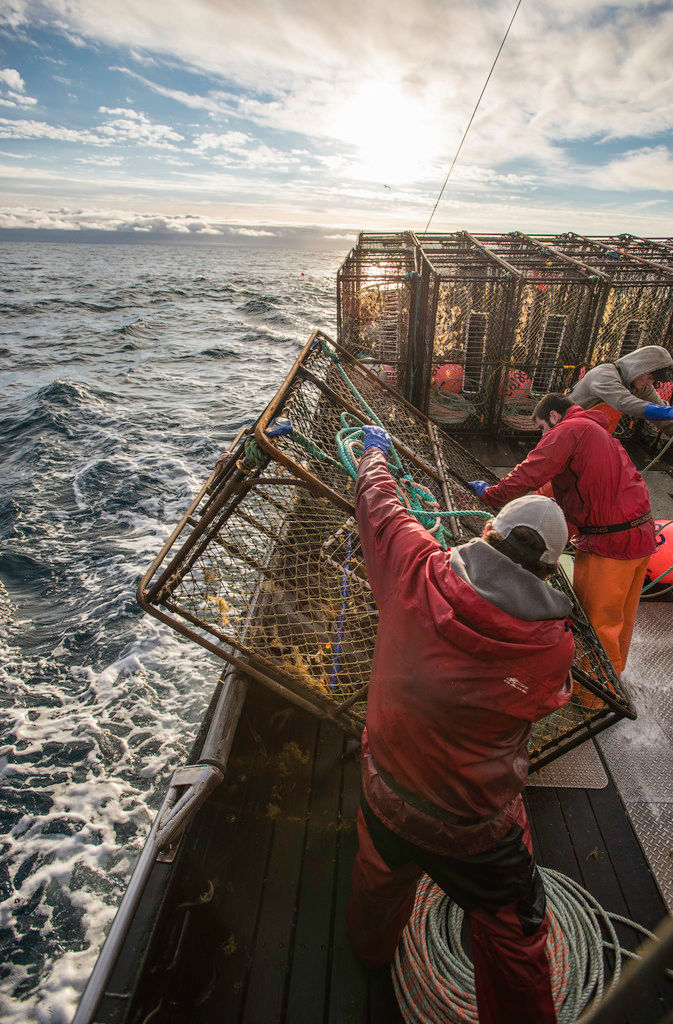Monday, August 22, 2022
- admin04655
- Aug 21, 2022
- 4 min read
International An international team of scientists maps out life in the deep Bering Sea KUCB by Laurelin Kruse - August 19, 2022 A group of international researchers is out in the Bering Sea this summer exploring a world we humans don’t know much about—the deep ocean. https://www.kucb.org/science-environment/2022-08-19/an-international-team-of-scientists-maps-out-life-in-the-deep-bering-sea Environment/Science Washington salmon still facing threats, study finds KUOW by Courtney Flatt - August 19, 2022 Salmon and steelhead in the Interior Columbia Basin are still facing a lot of threats, according to a report from the National Oceanic and Atmospheric Administration. https://www.kuow.org/stories/washington-salmon-still-facing-threats-study-finds FYI’s US Coast Guard Cutter Douglas Denman arrives in Ketchikan KINY - August 20, 2022 Ketchikan, Alaska (KINY) - The crew of Coast Guard Cutter Douglas Denman arrived in Ketchikan on Friday, after a 36-day transit from Key West, Florida. https://www.kinyradio.com/news/news-of-the-north/us-coast-guard-cutter-douglas-denman-arrives-in-ketchikan/ Sea Grant and NOAA Announce Eight 2022 Joint Fellowship Awards SeafoodNews.com by Peggy Parker - August 19, 2022 A new batch of fellowships in the fields of fisheries populations, ecosystem dynamics, and marine resource economics was announced this week, providing financial and academic support for young scientists in the field of fisheries management. “Through the NMFS-Sea Grant Fellowship Program, this year’s class of talented fellows will advance their scientific and technical skills while informing current sustainable fisheries and environmental management challenges,” said Jonathan Pennock, Ph.D., National Sea Grant College Program director. “We are excited to welcome the incoming fellows and see where their research interests will take them in the future.” This year’s Fellows are: Karl Aspelund — MIT Sea Grant, Massachusetts Institute of Technology, is the only marine resource economics fellow this year. He’ll be working on “Individual tradable quotas: Balancing impacts on efficiency and labor markets” with the Northeast Fisheries Science Center. Johnna Brooks — North Carolina Sea Grant and North Carolina State University, will be working on “Development of a novel seasonal size-structured, tag-integrated, state-space stock assessment model with application to an estuarine fish stock” at the Southeast Fisheries Science Center. Emily Chen — California Sea Grant and University of California Berkeley, will be working on “Incorporating age structure into pre- and post-season assessments of California's salmon fishery” at the Southwest Fisheries Science Center. Matthew Marrero — Florida Sea Grant and Florida International University, will be working on "Modeling ecosystem-scale coral reef fisheries in South Florida using novel recreational fisher behavior data” at the Southeast Fisheries Science Center. Katrina Munsterman — Michigan Sea Grant and University of Michigan Ann Arbor will be “Incorporating consumer-producer feedbacks to quantify fish production on artificial reef habitats” at the Southeast Fisheries Science Center Kristin Privitera-Johnson — Washington Sea Grant and the University of Washington, whose faculty advisor is Andre Punt, will be working on “Methods for improving catch stability & informing assessment frequency” at the Northwest Fisheries Science Center Her mentor there is Richard D. Methot. Genoa Sullaway — Alaska Sea Grant and the University of Alaska, will be working on “Applying an integrated population model to understand marine processes affecting Western Alaskan Chinook salmon productivity and aid in bycatch prediction” at the Alaska Fisheries Science Center. Sullaway’s faculty advisor is Curry Cunningham and his NOAA Mentor is Lauren Rogers. Sarah Weisberg — New York Sea Grant and Stony Brook University Will be working on “Advancing climate-informed, ecosystem-based fisheries management through food web modeling, indicator development and risk analysis in the rapidly warming Gulf of Maine” at the Northeast Fisheries Science Center. These projects looking at fish population and ecosystem dynamics is vital to making high quality stock assessments. Fellows’ research focuses on modeling and managing systems of living marine resources, which includes quantitatively assessing the status of marine ecosystems, fish, invertebrates, marine mammals, seabirds and other targeted and protected species. The marine resource economics fellowship (Asplund’s) concentrates on economics related to the conservation and management of living marine resources. Fellows are chosen through a competitive process that involves national review by an expert panel. Since 1999, the NMFS-Sea Grant Joint Fellowship program has trained the next generation of specialized experts in fisheries management, addressing "the critical need for future fisheries scientists with expertise in stock assessment by supporting students pursuing doctoral degrees in related fields," according to the joint SeaGrant/NOAA Fisheries announcement. This year’s NMFS-Sea Grant Fellowship Research Symposium will take place concurrently with the annual American Fisheries Society meeting (August 21-25) in Spokane, Washington. During the symposium, fellows who have completed at least the first year of their fellowship will present updates on their research. The gathering will also include a professional development workshop for fellows on science communication, resume building and career opportunities. Since the fellowship began, it has supported over 100 population and ecosystem dynamics and 38 marine resource economics doctoral fellows. Alumni of this fellowship typically hold future positions in NOAA Fisheries, other agencies, academics and fishery management councils. To learn more about the field of fisheries management and how these fellowships address the need for career development opportunities in this specialized field, see this Report to Congress and this academic paper. https://www.seafoodnews.com/Story/1233044/Sea-Grant-and-NOAA-Announce-Eight-2022-Joint-Fellowship-Awards Pacific Seafood Processors Association 1900 W Emerson Place Suite 205, Seattle, WA 98119 Phone: 206.281.1667 E-mail: admin@pspafish.net; Website: www.pspafish.net Our office days/hours are Monday-Friday 8:00 A.M. - 5:00 P.M. In accordance with Title 17 U.S.C. Section 107, any copyrighted work in this message is distributed under fair use without profit or payment to those who have expressed a prior interest in receiving this information for non-profit research and educational purposes only. *Inclusion of a news article, report, or other document in this email does not imply PSPA support or endorsement of the information or opinion expressed in the document.




Comments